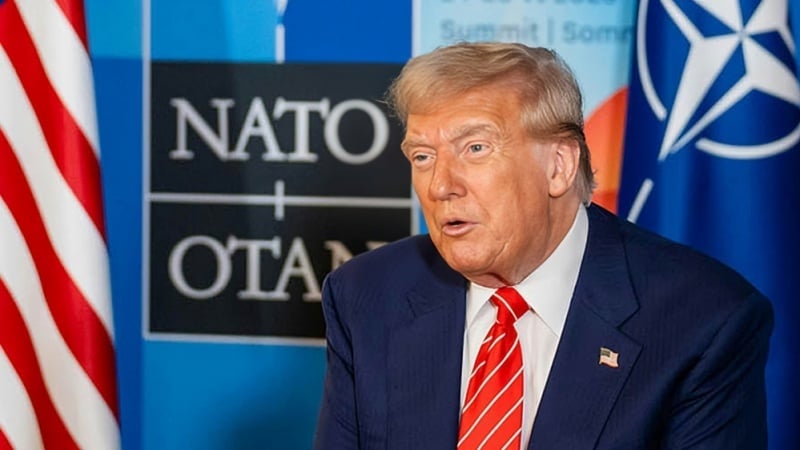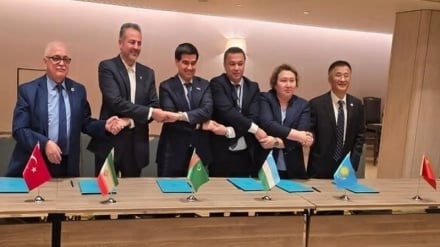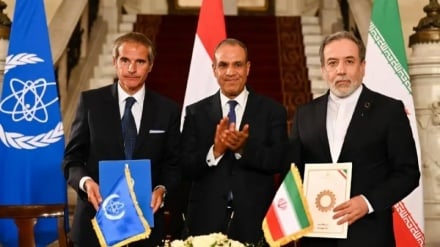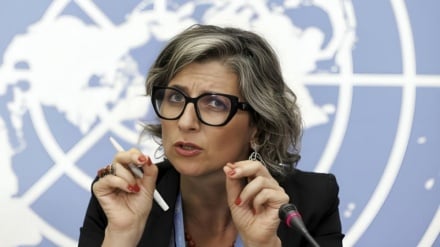How does NATO respond to Trump’s ultimatum?
-

How do NATO respond to Trump’s ultimatum?
Pars Today – U.S. President Donald Trump has set new conditions for continuing support of Ukraine in its war with Russia.
In a post on the social network Truth Social, Trump wrote:
“I am ready to impose major sanctions on Russia, provided that all NATO member states agree to take the same action, and that all NATO countries stop buying oil from Russia.”
These remarks—which Trump described as a letter to “all NATO countries and the world”—are not only a diplomatic threat but also a clear ultimatum to Western allies.
Trump called the purchase of Russian oil by some NATO members “shocking,” and added that NATO’s commitment to victory in this crisis has been “less than 100 percent.”
These comments come at a time of escalating tensions in the Ukraine war. A few days ago, several Russian drones that had entered Polish airspace were shot down by NATO fighter jets.
The incident, also reported by Romania, sounded the alarm for NATO. In response, Trump shifted the responsibility onto America’s allies, saying that until NATO takes reciprocal steps, the United States will not implement new sanctions against Russia.
This approach—mixing pressure on Russia with criticism of America’s allies—is consistent with Trump’s record. He has always attacked NATO for insufficient defense spending and is now seeking to use recent developments in Eastern Europe to advance his economic and military objectives.
Despite sweeping Western sanctions since 2022, Russia still earns vast revenues from oil sales to third countries. According to the Centre for Research on Energy and Clean Air, Turkey, a NATO member, is the third-largest buyer of Russian oil after China and India. Hungary and Slovakia also remain heavily dependent on energy imports from Moscow.
Trump believes that a complete halt to Russian oil purchases by NATO members, along with tariffs of 50 to 100 percent on China (as Russia’s main oil buyer), could “break China’s strong control over Russia” and lead to peace in Ukraine.
However, Trump’s proposal for NATO states to stop buying Russian oil and gas, as well as to impose heavy tariffs on imports from China, faces major challenges. For example, persuading Turkey—which has close ties with Moscow—to cut oil imports from Russia will not be easy. Moreover, the European Union (with some members also part of NATO) imported about $42 billion worth of goods from Russia in 2024.
At the same time, Russia continues to supply 10 percent of Europe’s natural gas needs. Any change in these arrangements would put severe economic pressure on Europe’s fragile economies, making it unlikely they can easily meet Trump’s conditions for continuing aid to Ukraine in its war with Russia.
Especially since Europe has no desire to be dragged into Trump’s trade war with China or to impose steep tariffs on Chinese imports—a move that would certainly provoke retaliation from Beijing against European exports.
Furthermore, Trump’s contradictory behavior and repeated retreats in the face of Russia and China have raised concerns in Europe—including the possibility that, at the last moment, Washington could back down from confrontation with these two powers without considering Europe’s medium- or long-term interests.
These concerns have made NATO countries cautious in responding to Trump’s new proposal. Yet they face limited options: on one hand, they feel the Russian threat on NATO’s eastern front is growing daily, and on the other, the U.S. government no longer seems willing to provide the generous support for the Ukraine war that it once did. This dilemma has left Europeans caught between Moscow and Washington in an increasingly difficult position.


